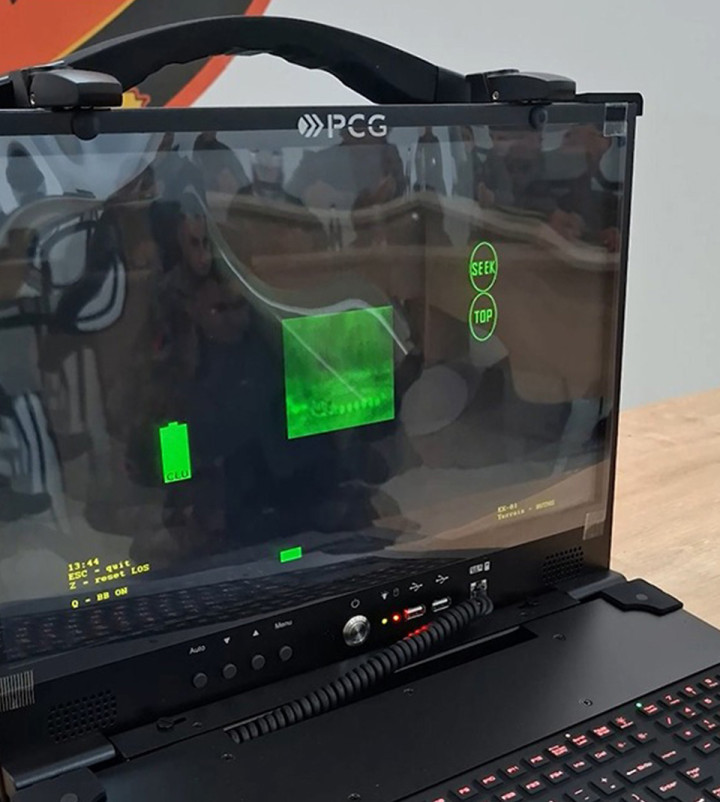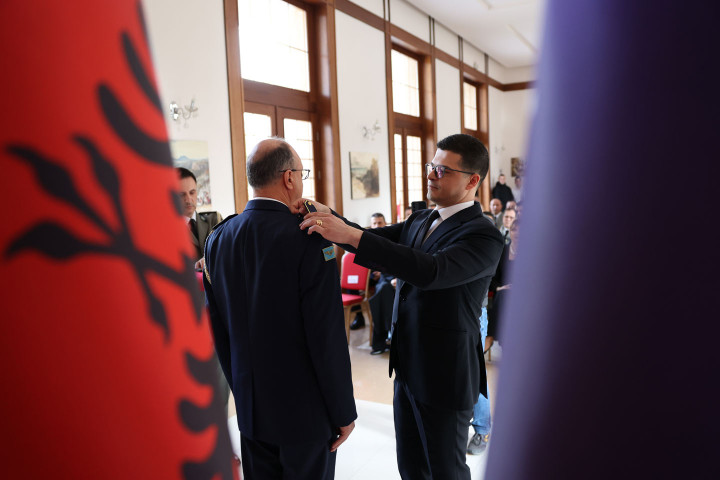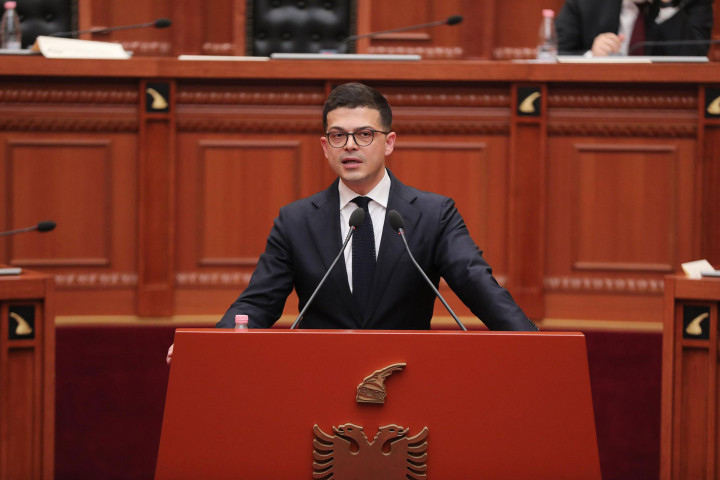Openning remarks of the Minister of Defence, Mrs. Mimi Kodheli, at the “Intelligence and Democracy” workshop
-
Published: Monday, 28 April 2014 12:36
Your Excellency Ambassador Arvizu,
Distinguished professors of the Naval Postgraduate School,
Distinguished members of the Assembly,
Dear participants,
Ladies and Gentlemen,
I am pleased to welcome you today to the “Intelligence and Democracy” seminar, the first of a series of three seminars, which involves participants from other institutions in addition to the Ministry of Defense.
I take this opportunity to thank you Maj. Mitchell and the staff of the ODC Office in Tirana for all the arrangements you have made, and in particular for bringing an excellent group of subject matter experts, who have dedicated most of their professional career to issues pertaining to intelligence and democracy.
We are happy we are joined today by Professor James J. Wirtz, the Dean of the International School of Graduate Studies and Professor at the National Security Affairs Department, by Scott Jasper who is also a lecturer at the Naval Postgraduate School in the Center for Civil-Military Relations and the National Security Affairs department, and by Florina Cristiana (Cris) Matei, who as Romanian by origin, has been asked to join and give some regional flavor to the team.
The three of them have a long experience in the area of intelligence, democracy and civil military relations, they have researched extensively on these areas, and are the authors of considerable number of scholarly articles and books. I advise to have a look at heir CVs which have been made part of your folders today.
Professor Wirtz, Captain Jasper and Chris thank you very much for joining us today and share with the participants your experience and insights on “intelligence and democracy”.
I am really pleased to note that, some members of the National Assembly have joined us today and will attend the seminar. Thank you very much, dear colleagues, for taking the time, and setting the bar high to this seminar, which I am sure, will provide for all participants a good opportunity to coherently address such an important and sensitive issue as the relationship between Intelligence and Democracy is.
I also wanted to highlight that this seminar comes, for a number of reasons, very timely. With a debate on intelligence related issues going on in Albania, I believe presentations of the experts on the role of intelligence in democracy, intelligence cooperation, increasing professionalism of intelligence in a democracy, as well as case studies, will help you participants getter a better understanding on these issues. In that regard, I strongly recommend that you make best use of this seminar. You will have a lot to take away from this seminar.
As we all are aware, intelligence, intended as the collection, processing and dissemination of information according to the needs of a national government, is a very important tool for providing adequate information and reliable analysis to policymakers and decision makers helping them make sound judgments in the areas of internal and external security, national defense and foreign relations.
With that said, intelligence is of crucial importance for the state in protecting its security, safety and national interests. As with other sectors, intelligence is one from which citizens expect effectiveness and efficiency.
However, that is a sector which requires effective control and oversight which, in a democratic society, should be framed in a way that should provide for the balance between security and collective interests in one hand and individual freedoms and rights on the other.
Some may think that “Democracy and Intelligence” can hardly stand together. When we speak of “democracy” we immediately think of openness of expression and discussion, and free flow of information.
While when we speak of “intelligence” we immediately think of “secrecy”. Hence, the main challenge that comes up is how to orient intelligence organizations respect democratic system. In a democratic state, a trade-off between these two “diverging interests” (if I may say so) has to be found in a politically and legal way. This implies a conscious decision about what is permitted and what is not. The government must therefore lay down general principles for what is acceptable, and ensure that these principles are respected by the intelligence services.
The Ministry of Defense is in the process reviewing the Military Intelligence legal framework, with the purpose of improving the activity of the Agency and clarifying its informative activity in complete harmony with the national legislation.
The new law is fully based on the philosophy of establishing a functioning intelligence institution of a NATO member country, which operates by respecting the law, by respecting the principles of objectivity, political impartiality, respect of fundamental freedoms and rights, centralized management and control, inter-institutional cooperation, security and safety of information and respecting the principle of accountability.
To conclude, I would like to wish you participants a very successful seminar. As I mentioned earlier, you will have a lot to take away from this seminar and from the experience of our distinguished speakers.
On the other hand, I am sure that with your experience, and with your active participation, you will contribute to a successful seminar.
I would also like to thank again our guests from the United States, wish you a very pleasant stay in Tirana and invite you to explore the beauty of this city.
Thank you!
Articles from Newsroom
Wednesday, 04 February 2026

Friday, 30 January 2026


2026 Budget: A budget for sovereignty, higher salaries, and Armed Forces modernization
Monday, 26 January 2026